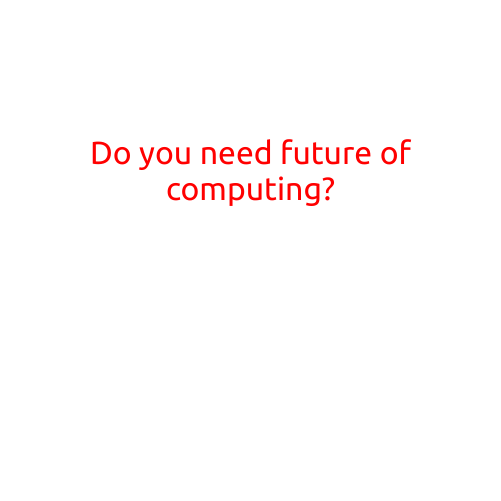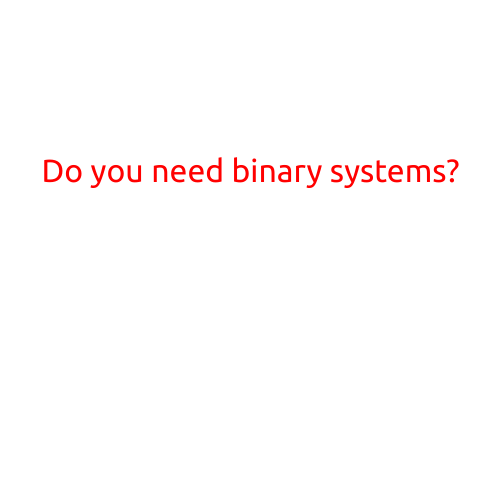
Do You Need the Future of Computing?
The rapid pace of technological advancements has brought about significant changes in the way we live and work. Computing, in particular, has evolved dramatically over the past few decades, with innovations like artificial intelligence, cloud computing, and the Internet of Things (IoT) altering the landscape of the industry. As we look to the future, it’s natural to wonder: do we really need the next wave of computing innovations?
The Current State of Computing
Currently, computing is ubiquitous, with billions of people worldwide using devices like smartphones, laptops, and tablets to access information, communicate with others, and complete tasks. The widespread adoption of cloud computing has enabled on-demand access to vast computing resources, making it easier for individuals and businesses to store, process, and analyze large amounts of data.
However, despite these advancements, computing still faces significant challenges. For instance, the need for increased processing power, storage capacity, and energy efficiency continues to drive innovation in computing hardware and software.
The Emergence of New Technologies
Several emerging technologies are poised to transform the future of computing, including:
- Quantum Computing: This revolutionary technology uses the principles of quantum mechanics to perform calculations far faster and more efficiently than classical computers. Quantum computers have the potential to solve complex problems that are currently unsolvable, such as modeling climate change and cracking complex encryption codes.
- Edge Computing: As the amount of data generated by IoT devices grows exponentially, edge computing enables data processing and analysis at the edge of the network, reducing latency and improving real-time decision-making capabilities.
- Neuromorphic Computing: Inspired by the human brain, neuromorphic computing mimics the structure and function of neurons to develop more efficient and adaptive computing systems.
- FPGA-based Computing: Field-Programmable Gate Arrays (FPGAs) allow for the customization of computing hardware to specific applications, promising improved performance and energy efficiency.
Do We Really Need These Innovations?
While it’s easy to dismiss the need for future computing innovations, the benefits of these emerging technologies are multifaceted:
- Accelerated Innovation: Quantum computing, for instance, has the potential to accelerate scientific breakthroughs, leading to new discoveries and advancements in fields like medicine, finance, and climate modeling.
- Improved Efficiency: Edge computing and FPGA-based computing can reduce energy consumption, lower costs, and increase computing power, making them attractive for industries like healthcare, transportation, and environmental monitoring.
- Enhanced Security: Neuromorphic computing, with its ability to mimic human intelligence, can develop more effective security measures to protect against cyber threats and data breaches.
- Advancements in Everyday Life: The benefits of future computing innovations will eventually trickle down to everyday life, enabling us to enjoy new technologies and services that improve our quality of life.
Conclusion
While the need for future computing innovations may seem abstract, the potential benefits are undeniable. As the computing industry continues to evolve, it’s essential to recognize thevalue of these emerging technologies. By embracing the future of computing, we can unlock new possibilities, drive innovation, and improve our lives in meaningful ways. So, yes, we do need the future of computing – and its impact will be felt for generations to come.





